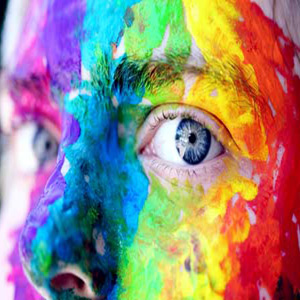Sexual Disorientation
© Paul Wilson for Auckland Therapy Blog, 1 September 2018
Three facts about sexuality that everyone should know
 We are enormously diverse in our desires and our attractions. There is no ‘normal’ when it comes to sexuality. We’re all kinky in our own way – maybe a little or maybe a lot. That’s the deal - no two of us are exactly alike.
We are enormously diverse in our desires and our attractions. There is no ‘normal’ when it comes to sexuality. We’re all kinky in our own way – maybe a little or maybe a lot. That’s the deal - no two of us are exactly alike.
Unfortunately, Western society prefers certainty and has tried to pretend otherwise for a long time. This has led to a great number of misconceptions about human sexuality and its complexity.
Human beings are a highly sexual species. Biologically speaking, sexual species are those which reproduce by intermixing their genomes to produce their offspring. This is in contrast to asexual species which reproduce by members making identical copies of themselves.
Genetic diversity
The biological advantage that sex offers is the enormous increased in genetic diversity as no two offspring are alike. This has allowed sexual species to dominate by reaching into new environments and by adapting rapidly to any changes in their current one.
Sex has diversity as its very reason for existence and this diversity extends throughout human sexuality on multiple levels. Humans are one of the few species in which sexuality has expanded way beyond biology in that the majority of the sex that human beings have is for pleasure and self-expression, not for reproduction.
I’m going to talk about three misunderstandings that I believe everyone would benefit from knowing.
1) Beyond gay & straight
The first misconception that I want to mention is that we tend to divide the world into gay and straight. Whilst it varies by culture and what questions you ask people, about 2% of the population self-identifies as exclusively gay or lesbian. However, about an additional 7% report being attracted to both men and women. So in reality, bisexuality is the most common form of non-heterosexuality yet that doesn’t get acknowledged much. Whilst women are more willing to self-identify as bisexual, the majority of the men in this group continue to identify as straight even though they may have sex with men. There is evidence to suggest that bisexual attraction is actually far higher than 7% but due to it not being talked about, many who experience it feel confused or conflicted about their attractions and never disclose it.
2) Bisexual attraction
The second misconception is that bisexuality involves being equally attracted to both men and women. Whilst that is indeed true for some bisexual individuals, most experience stronger desire for one sex than the other. In fact, the most common form of bisexual desire is what we might describe as ‘mostly straight’ i.e. someone who usually experiences desire for the opposite sex but occasionally also experiences attraction towards some members of the same sex.
3) Two systems of attraction
The third misconceptions is we tend to assume that romantic attraction and sexual attraction go together. In reality, these two systems of attraction are independent of each other. Sexual attraction is common to all sexual species however, romantic attraction is largely unique to humans and is linked to the attachment system. Human children are born highly dependent and we are wired to want to be physically close to our caregivers and to form strong emotional bonds with them. Even as adults, these attachment needs never leave us and instead underpin our interest in romantic relationships.
Because these systems of attraction are separate, it’s possibly to feel either one without the other. Many people who experience sexual desire for both sexes only experience romantic attraction for one sex, so they may be bi-sexual but not bi-romantic. Conversely, many straight individuals experience same sex infatuations. This is often part of adolescence but can also happen for adults. This can lead to people having what we might call ‘romantic friendships’ which are characterised by intense feelings of love and a wish for closeness but absent any sexual desire.
Distressed or conflicted?
So if any of the above are part of your experience (or someone you know), rest assured that there is nothing ‘abnormal’ or ‘wrong’ about it. Rather it’s an expression of the enormous sexual and romantic diversity that characterises our species. However, if you are feeling distressed or conflicted about any aspect of your sexuality, talking about it with someone open-minded, caring and knowledgeable about human sexuality can make a big difference in improving your wellbeing.
